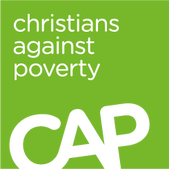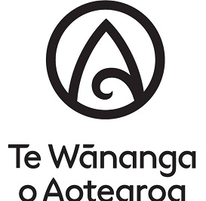Free Financial Literacy Classes
Our directory lists free financial literacy courses offered by the Open Polytechnic, Christians Against Poverty, Te Wānanga o Aotearoa, Westpac, Banqer, ASB, Sorted in Schools and MoneyTime.
Updated 26 February 2022
Whatever your financial literacy needs, there are free courses to help. Whether your focus is budgeting, buying a first home, investing or cutting down debt, government and commercial organisations can help you. Our guide looks primarily at adult-focused courses that operate throughout the year.
Know This: Many MoneyHub users have responded very well to a book called The Barefoot Investor. While it's not free, it is arguably worth the investment if you're looking to live a financially secure life.
Whatever your financial literacy needs, there are free courses to help. Whether your focus is budgeting, buying a first home, investing or cutting down debt, government and commercial organisations can help you. Our guide looks primarily at adult-focused courses that operate throughout the year.
Know This: Many MoneyHub users have responded very well to a book called The Barefoot Investor. While it's not free, it is arguably worth the investment if you're looking to live a financially secure life.
Before you enrol in any online course, we suggest reading the following MoneyHub guides:
The Open Polytechnic's Financial Skills for Life (FOU103)Type of course: Online
Structure: The Open Polytechnic offers a 16-week course free of charge. The course covers:
The Open Polytechnics describes the course's main purpose: to "provide you with a good understanding of personal finances and how they affect your life". Helpfully, the course is designed to "teach you about budgeting and managing money, and how significant life events can impact this". Enrolment and time investment
More details: Open Polytechnic |
The CAP (Christians Against Poverty) Money CourseType of course: In-person. CAP offers its signature Money Course in locations around New Zealand. Please note, CAP helps anyone, regardless of religious beliefs etc. so you don't need to be a Christian to attend the course.
Structure: The course usually consists of three weekly sessions (approximately two hours each) and is free to enrol. The course focuses on using the CAP money tool (an online budgeting system) and covers:
Enrolment and time investment The course is in-person and has monthly intakes around New Zealand. The estimated time investment is around 2-3 hours/week for three weeks. More details: CAP New Zealand |
Papa Whairawa/NZ Certificate in Personal Financial CapabilityType of course: Online. Te Wānanga o Aotearoa is a Māori-led organisation grounded in Māori values. Their Papa Whairawa/NZ Certificate in Personal Financial Capability course is designed to give you the insight and tools you need to manage your finances.
Structure: The course aims to challenge your thinking about money and how that influences your money behaviours. It builds tools to plan for your future, save, and manage your budget. The course helps by offering the assistant of regular visits from a kaitiaki (support person). The course covers:
Enrolment and time investment The course is online and has monthly intakes. It's a part-time programme delivered over nine months with an estimated 17 hours of learning per week. More details: Te Wānanga o Aotearoa |
Westpac's Managing Your Money WebinarsType of course: Online.
Structure: Westpac offers its Managing Your Money online classes to every New Zealand (i.e. you don't need to be a Westpac customer). Held in a webinar format, online classes are generally run Tuesday's and Wednesday's (twice daily at 10am and 8pm). The topics covered include:
Enrolment and time investment: Westpac's Facebook events page outlines what classes are coming up. If you do not wish to register through Facebook, you can sign up via [email protected]. The sessions are one hour long, and you can join as many or as few as you like. More details: Westpac |
School-based resourcesMany specialist providers offer financial literacy programs for school children. It's likely your child's school already has one of these programs in place, but if not, MoneyTime and ASB's GetWise are available for home use.
Banqer Banqer is a social enterprise committed to raising societal financial capability levels through relatable and engaging education. Now live in over half of New Zealand's schools, Banqer focuses on modules that teach the foundations of everyday finances, including:
Sorted in Schools Sorted in Schools offers financial capability teaching and learning programmes to hundreds of secondary schools, available in English Medium and Māori Medium Education. More details: Sorted in Schools MoneyTime MoneyTime is a web-based, self-taught financial literacy program that aims to make teaching financial literacy easy. Its modules include:
ASB GetWise GetWise is in over 1,500 schools throughout New Zealand and helps children learn more about money. Beyond the classroom, parents can support their children with a selection of resources for home use. More details: ASB GetWise |
Related Guides:
Related Tools:
Money Tips:
Related Tools:
Money Tips:











